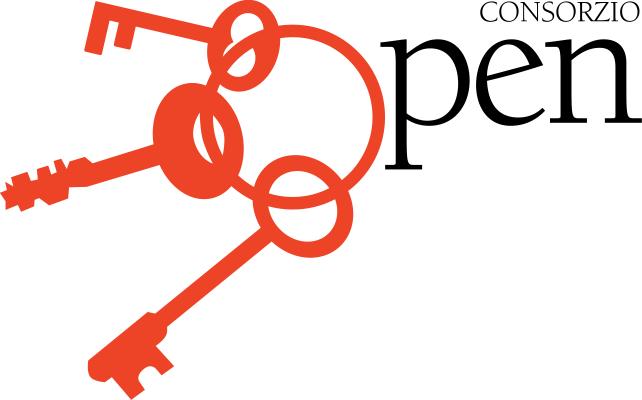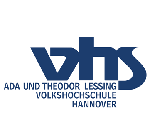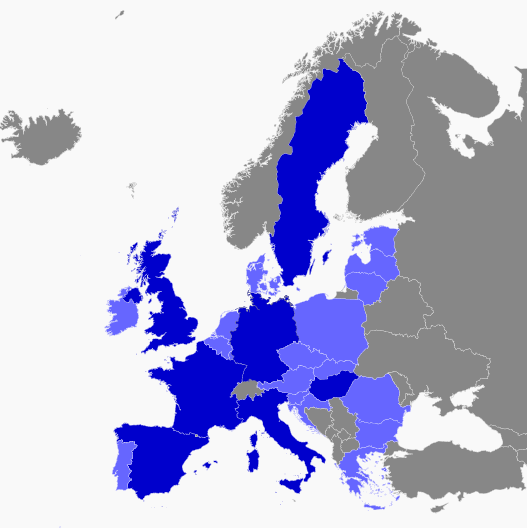West London Equality Centre, WLEC, (the operational name of Ealing Equality Council) is a Human Rights organisation. Its mission statement is "Advancing equality and rights for all". For over 30 years it has been running the Community Advice Programme (CAP), a legal clinic providing free legal assistance to members of the public. WLEC are specialists in matters related to several areas of law and the Equality Act 2010, delivering key legal services to the minority ethnic, refugee and migrant communities in West London.
WLEC has Human Rights expertise at every level of the organisation from governance to frontline delivery and shaping local and subregional policy. This makes WLEC unique to West London. This is as a result of:
- WLECâs relationship for over 30 years with the University of West London [UWL], its law department, law tutors and law students, we have found ourselves operating at the forefront of the equality and human rights agenda. For several years WLEC has been strategically positioned as the leading Equality and Human Rights champion for this part of London.
- The Management Committee being composed of Human Rights specialists /academics/ practitioners â and volunteers drawn from the social sciences and legal disciplines, familiar with human right issues, both international and domestic.
- Trustees include a wide range of distinguished academics and experienced legal practitioners including Professor Kwame Akuffo, retired judge Bernard Andonian, Solicitor Barbara Karayi, and Barrister Josephine De Souza.
- WLEC staff and trustees have advised EHRC on human rights issues and advised Southall Black Sisters in their case against Ealing Council when the local authority threatened to decommission a separate domestic violence service for BMER women.
- Our Anti-Hate Crime work has included Hate Crime support services in Hounslow (funded by Hounslow Council) and West London (funded by London Mayors Office). The Hounslow service was cited as a model of good practice by the Deputy Mayor of London and lead on Hate Crime in the capital. We are also members of the pan-London MOPAC Hate Crime delivery group for thirty-two municipalities. With the support of the National Lottery Community Fund, we are in the second cycle of our hate crime tackling project providing multidimensional approach of victimsâ support, bringing perpetrators to justice, facilitating awareness campaigns, and increasing statutory and voluntary sector collaborative working to combat hate crime.
- Our previous international projects include SMART: Funded by the EU, a partnership with Ealing Council and Italian VCSE partners delivering a migrant assisted returns service, based on âouthouse/shedâ housing abuses and other issues uncovered by LBE, the Police and WLEC. Our organisation delivers help and advice to mainly vulnerable people in matters related to undocumented migrants, homeless families not entitled to public funds, trafficking, forced labour, immigration advice, etc, using Human Rights and other law to achieve better outcomes. The MILAR project aimed to integrate Refugees and Asylum seekers into society economically by way of employment, socially and through education. Working closely with multiple organisations, both from a national and international platform including Germany, Sweden and Italy; the project was based on researching and developing social community enterprise and most importantly the implementation of a successful pattern tested model. The West London Equality Centre carried out and conducted the United Kingdom aspect of the work. The project was aimed to evaluate and apply a âbottom-upâ approach specifically by empowering individuals, providing refugees and at least 24 asylum seekers with the skills, knowledge, and tools to enable their individual development, thus increasing community cohesion.
- In our generalist and specialist advice, (ongoing for over 30 years in Ealing), we provide advocacy and casework service, through highly motivated law graduates and undergraduates who have studied Human Rights as part of their legal training. In partnership with the Community Advice Programme, we service annually thousands of enquiries consisting of telephone advice, face-to-face triage for drop-in clients without phones, internet, etc, face-to-face appointment advice clinics, casework, referrals, and signposting.
- In addition to generalist advice WLECâs service covers Domestic Violence, Honour Crimes, Hate Crimes, Human Trafficking, Caste discrimination and other areas relating to equality.
The quality of our service is reflected in our high calibre pro bono volunteers, who have included: Queens Counsels, Judges, Magistrates, Solicitors, Barristers and local law students and our quality assured volunteering programmes.
Adress
84 Uxbridge Road
Ealing, London, W18 8RA
United Kingdom
Tel. +44 20 8231 2575
Stephansstift ZEB is an adult education center under the roof of Stephansstift Foundation which again is part of the umbrella organization Dachstiftung Diakonie with around 3500 employees.
Stephansstift foundation has a long history in social work and social inclusion. It has youth and family welfare activities, childrensâ daycare centres, special needs schools, an adult education centre with boarding home, vocational schools, and several residential and care homes for the elderly.
As part of the clerical and social welfare (Diakonie) Stephansstift ZEB (Centre for Adult Education) is a provider for general adult education and professional education for the social sector in Hannover, Germany. It follows the concept of Grundtvig as a âHeimvolkshochschuleâ, which implies the concept of informal learning and living under one and the same roof and thus bringing together different people. As residential school it employs around 50 people: pedagogues, administration, reception, kitchen and housekeeping staff.
Around 20.000 participants per year come to a big variety of non-formal courses or to continuing education and training, mainly in the field of guidance, social services/social work and Diakonie for people in need. A big number of participants are volunteers and multipliers as well as professional social workers and educators working with volunteers and disadvantaged persons for social integration and employability.
Stephansstift Foundation focusses on helping vulnerable groups, rehabilitation and integration into society.
Since 2015 Stephansstift ZEB (Centre for Adult Education) puts a focus on migration and refugees and offers German courses for refugees and also courses for volunteers and professionals that work with refugees and migrants with topics of how to teach German and intercultural competence.
Consorzio OPEN is an association of 8 Italian organisations working on a regional or national level. - CEFAL - Emilia Romagna Region - Techné - Emilia Romagna Region - Istituto Don Calabria in Veneto, Emilia Romagna and Sicily Region - Cooperativa sociale A&I (Accoglienza e Integrazione) in Lombardia Region - Fondazione Casa di Carità in Piemonte Region - Scuola Centrale di Formazione Emilia Romagna Region - Coss Marche, Marche Region - Escoop, Puglia Region
Consorzio OPEN has about 3200 actively involved contributors (employees, volunteers, etc.) working with about 34.000 beneficiaries per year. The consortium has 132 offices in 11 regions of Italy: Liguria, Piemonte, Lombardia, Veneto, Friuli, Venezia, Giulia, Emilia Romagna, Marche, Puglia, Basilicata, Sicilia, Sardegna.
Historically, Consorzio OPEN goes back to a project funded by the ESF in 2007. The cooperation of organisations promoting vocational training and working inclusion of young people and adults in situations of social, economic and cultural disadvantage developed into the desire to set up a continuing partnership based on shared goals.
Thus, in 2010, Consorzio OPEN was formed as a national network to combat social exclusion of people with disadvantage through activities and social rehabilitation services and training aimed at redefining a new life project. Beneficiaries are refugees, ex-convicts, ex drug-addicts, disabled, long-term unemployed, school drop-outs and many more. In recent years, working with refugees and immigrants has become a more important focus.
Consorzio OPENâs priority is to develop new systems and strategies to promote social inclusion and employment of people who have a serious social disadvantage and live in the margins.
To this end, OPEN promotes participation of people in training and employment support by promoting initiatives of comparison and debate, such as â inter-professional training for organizational well-being personnel â dialogue between institutions (companies, social economy, citizenship) â Involving local administration, national and European bodies to stimulate change in the policies and practices of public institutions.
VHS Hannover (Volkshochschule Hannover), founded in 1919, is a non-profit adult education institution affiliated to the municipality of Hannover, capital of the province of Lower Saxony, Germany. With a salaried staff of 100 (about 75 FTE), plus about 800 freelance teachers, it offers a programme of 115 000 teaching hours per year, attended by 30 000 participants.
The main objective of VHS Hannover, laid down in its statutes, is to help citizens of Hannover (500 000 in the town itself, about 1.2 million in the wider metropolitan area) to actively participate in society and to develop their skills and personality.
The programme includes a wide range of subjects of general, vocational, social and cultural education. They are grouped into the areas of:
- Society, environment, education,
- Culture, creativity, design,
- Health, nutrition, well-being
- Foreign languages
- Basic skills, school-leaving certificates,
- Work, vocational training, career development, IT skills
- Integration and German language courses for immigrants
Courses are offered in VHS Hannoverâs main building in the city centre, in a number of other dedicated locations in various other parts of the city, as well as in neighbourhood schools. Courses include daytime and evening courses, weekend courses and block seminars in accordance with the provincial regulations for âeducation holidaysâ.
VHS Hannover also organises public events, exhibitions, panel discussions on topics of public interest etc. It cooperates with a large number of other public and civic organisations in fields such as culture, social inclusion, and popularisation of education.
One line of activity that distinguishes VHS Hannover from similar organisations is that is responsible for providing Second Chance basic and secondary education to school drop outs (young adults who left compulsory school age without having achieved any degree). There are about 10 classes for such learners on a continuing base, with 20 full-time teachers employed only for this. This activity is commissioned to VHS Hannover by the Hannover municipality.
VHS Hannover is financed through course fees and public subsidies (both from the municipal and the provincial budget). Fees are purposefully low in order to make education accessible for everybody.
VHS Hannover is a member of âDeutscher Volkshochschulverbandâ, a national umbrella organisation of 900 âVolkshochschuleâ type adult education centres. âVolkshochschulenâ are regarded as Germanyâs most visible non-profit providers of general adult education including continuing and vocational training, second-chance education, and all sorts of activities in the field of culture and health education. VHS Hannover is part of the administrative structure of Hannover municipality. Its learning offers are however independently designed, without interference from overall municipal administration.
Quality management certificates issued to VHS Hannover are ZAZAVplus (a quality management system specialized on adult education institutions), and for its vocational further education department also AZAV which entitles VHS Hannover to provide vocational further education by order of the National Employment Agency.
Other Projects
The eight organsiations running the HYS project are also active in other Erasmus+ projects. Here we present a selection of them.
Page 2 of 3















